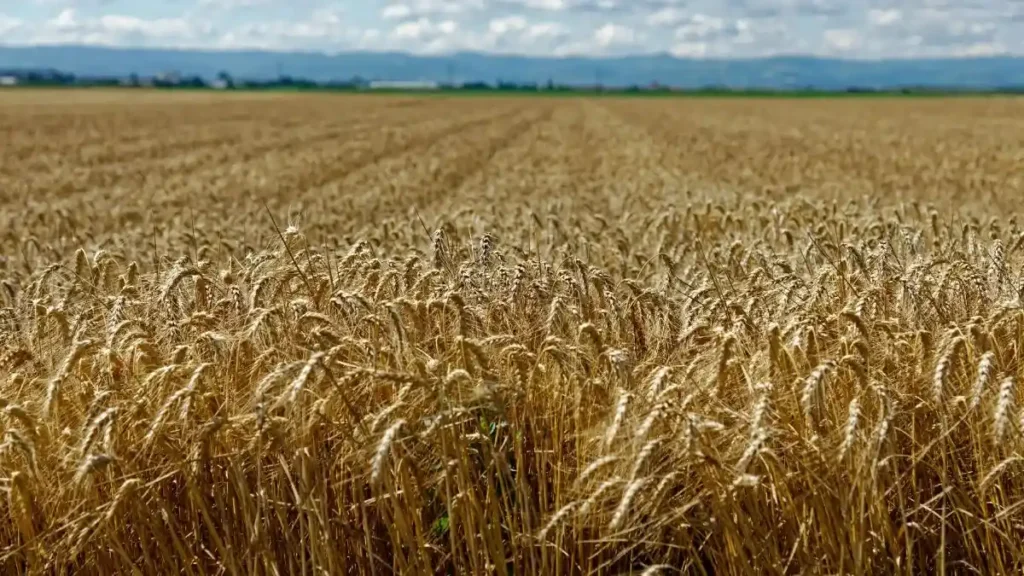Punjab flour milling industry Urge Govt to Resolve Wheat Supply Crisis
The Roller Flour Millers Association of Punjab has urgently called upon the Central Government to address the escalating wheat supply crisis affecting the state’s flour milling industry. In an awareness workshop held on Thursday, the association highlighted the pressing need for increased wheat availability to sustain operations and support the agrarian economy of Punjab.
Presiding over the function, Principal Secretary of Food & Civil Supplies, Vikas Garg, underscored the critical role of the roller flour milling industry within Punjab’s Micro, Small, and Medium Enterprises (MSME) sector.
Association President Dharminder Singh Gill and Vice President Anil Popli emphasized that wheat, being a staple crop in Punjab, requires efficient processing to meet consumer demands.
They stated that the roller flour milling industry a micro, small, and medium (SME) sector and in Punjab, it is a vital industry for the prosperity of the farmers in agrarian state. is a major crop of the region, and it is flour milling that adds to it by converting it into wheat flour, which then reaches the consumers’ tables in various forms.
.”The association expressed concerns over the current wheat supply being regulated by the Food Corporation of India (FCI). They urged the FCI to release additional stocks into the open market to alleviate the shortage.
Gill and Popli noted, “Punjab is contributing 95 percent of its wheat production to the Central pool through the FCI; hence, the industry has to depend upon it in a big way for its requirement.” They further highlighted reports indicating a 3 to 4 percent increase in wheat sowing acreage this year, suggesting a potentially better harvest.
In light of this, they requested the government to offload at least 10 lakh metric tonnes (LMT) of wheat through the Open Market Sale Scheme (OMSS) to ensure sufficient supply in Punjab until the new crop is harvested on April 13.

During the workshop, the association passed a resolution outlining several key demands to bolster the industry and support local farmers. One significant proposal was the establishment of a committee comprising industry representatives and experts from Punjab Agricultural University. This committee would be tasked with designing and implementing schemes that foster better collaboration between the industry and farmers, aiming to enhance profitability and legal compliance.
Also Read: Switzerland withdraws Most Favored Nation status from India
Additionally, the association advocated for the development and promotion of special wheat varieties tailored to specific flour applications. This initiative aims to meet diverse consumer needs and open new market opportunities for both farmers and millers.
The roller flour milling industry in Punjab plays a pivotal role in adding value to the state’s wheat production by processing raw grain into various flour products consumed nationwide. However, the current wheat supply constraints pose significant challenges to the industry’s sustainability and profitability.
The association’s appeal to the Central Government highlights the urgency of implementing measures to stabilize wheat supply. By releasing additional stocks through the OMSS, the government can help bridge the gap between demand and supply, ensuring the continuous operation of flour mills and the economic well-being of farmers.
Moreover, the proposed collaboration between the industry and academic institutions like Punjab Agricultural University signifies a proactive approach to addressing systemic issues. Such partnerships can lead to innovative solutions, including the development of high-yield, disease-resistant wheat varieties and the adoption of advanced milling technologies.
Also Read: Punjab Rice Rejected: Major Setback as Quality Fails
The association’s emphasis on legal compliance and profitability reflects a broader commitment to sustainable practices within the industry. By adhering to regulatory standards and optimizing operational efficiency, the roller flour milling sector can enhance its competitiveness both domestically and internationally.
In conclusion, the Roller Flour Millers Association of Punjab’s call for immediate government intervention underscores the critical need to address the wheat supply crisis.
Timely action, coupled with strategic collaborations and innovative practices, can ensure the resilience of Punjab’s flour milling industry, thereby safeguarding the livelihoods of farmers and meeting the nutritional needs of consumers across the nation.

